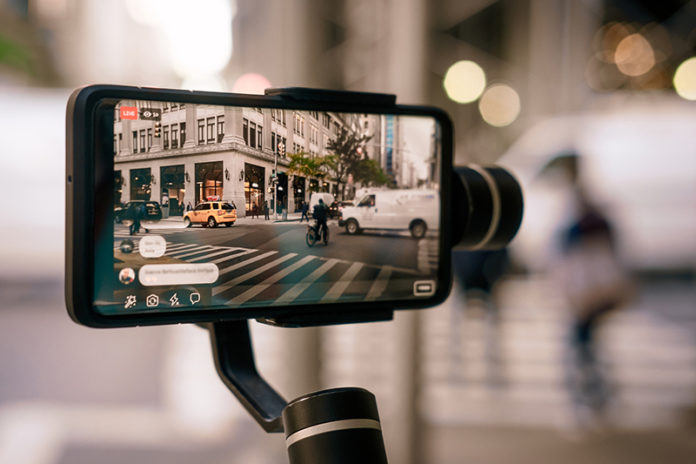Do you have a First Amendment right to record police officers in public?
If you instinctively said yes, you’re in good company. Attorneys, law professors, judges, journalists and even law enforcement agencies agree. The American Civil Liberties Union says so on its website. No serious legal scholar would argue otherwise.
The Supreme Court, however, has yet to acknowledge that right. Justices will have the chance to do so in Frasier v. Evans, a case that could preserve or pare back the qualified immunity doctrine that prevents officers from being sued for civil rights violations.
Levi Frasier sued Christopher Evans and five other Denver police officers who detained him in August 2014 after he recorded an arrest on his tablet computer. They searched the tablet without his consent and released Frasier after failing to find the video, which he later provided to a TV station.
Frasier wanted to hold the cops accountable for hassling him. A federal judge granted the officers qualified immunity for his detention because Frasier initially denied capturing video, and lying to the police violates Colorado law. But his claim that the police retaliated against him for constitutionally protected activity was allowed to proceed.
The 10th U.S. Circuit Court of Appeals ruled this March that Evans and his colleagues are entitled to qualified immunity because Frasier’s right to record police wasn’t clearly established.
Precedent affirming First Amendment protection for documenting police activity was already on the books in six of the 13 federal circuits, but the question hadn’t reached the Byron White U.S. Courthouse’s Denver doorstep. A panel of three 10th Circuit judges sidestepped the issue, declining to say whether Frasier had a constitutional right to record.
Since 2007, the Denver Police Department has trained officers to understand that citizens have the right to film them. Yet government employees receive qualified immunity from lawsuits unless a plaintiff can prove their conduct violated “clearly established statutory or constitutional rights of which a reasonable person should have known,” Circuit Judge Todd M. Hughes wrote, quoting a 2018 Supreme Court decision.
Qualified immunity didn’t exist until the high court established the doctrine in 1982. In nearly four decades, courts have expanded and fortified it, creating a shield that deflects claims against public officials who commit flagrant abuses as long as there’s no case law with nearly identical fact patterns.
Never mind that a Texas prison guard shouldn’t have pepper-sprayed an inmate in a locked cell who posed no threat to anyone, a 5th Circuit panel reasoned in February. Judges said the correctional officer couldn’t be sued because it wasn’t “clearly established” that the assault ran afoul of the Eighth Amendment. Prior cases dealt with unprovoked beatings and Taser use against prisoners, but since they didn’t involve pepper spray, the court chose to consider them inapplicable.
Amid a national conversation about police reform, qualified immunity is an obstacle to weeding out the “bad apples” who use excessive force, make arrests without probable cause and otherwise violate citizens’ rights. Internal affairs complaints yield only a slap on the wrist. The prospect of being held personally liable for misconduct and facing a bank-breaking judgment could have a powerful deterrent effect.
Even if justices won’t swing at that pitch, there’s still some upside for accountability advocates. The high court can still declare, once and for all, that the First Amendment protects citizens who film the police. Decades of lower court precedent make that outcome all but inevitable.
It’s common knowledge, after all, that anyone can be recorded in a public place where there’s no reasonable expectation of privacy. Businesses train surveillance cameras on parking lots and surrounding streets. Doorbell video systems can foil neighborhood crime sprees. And police agencies rely on sound-activated ShotSpotter cameras to collect evidence in shooting investigations.
Officers might ask permission to search your car during a traffic stop, but they’ll never inquire whether it’s OK to record the interaction on their body cameras. You can’t prevent someone from taking your picture on a public road, whether or not the person behind the camera is wearing a badge.
If cops can record citizens, clearly people have the right to film their public servants. It’s time the Supreme Court finally said so.































